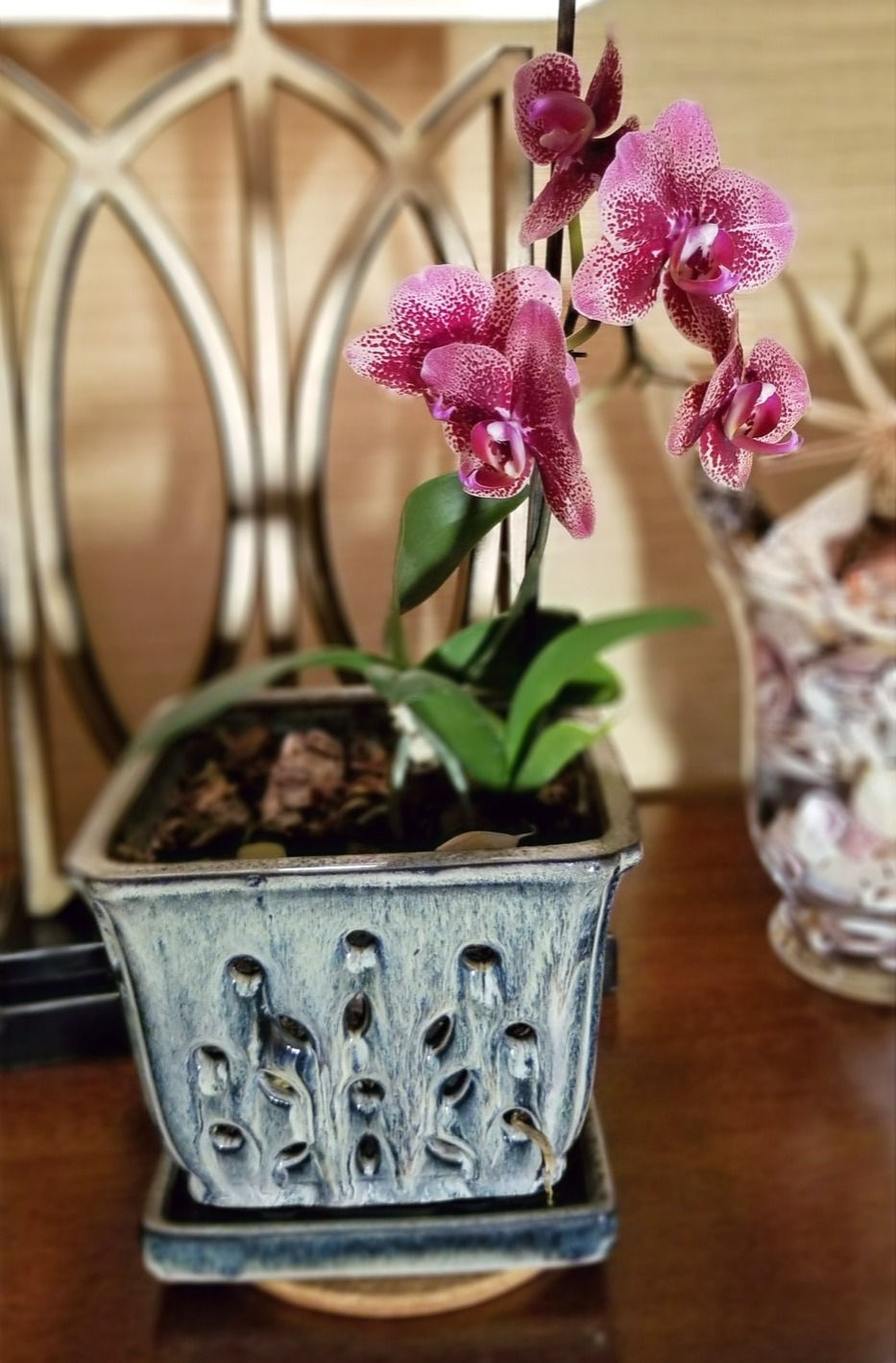“Spiritual Communion”
- Steve Auth
- Aug 4, 2022
- 4 min read
Mission Blog: Easter Orchid Series
“[The disciples from Emmaus] returned and told the others; but they did not believe them either.” Mark 16:13
Naples, Day Seven of the Easter Appearances. I’m not sure about you, but I’m somehow getting more out of this “spiritual communion” at the daily “virtual Mass” than I thought I would. Somehow, kneeling there before the flickering Facebook screen, with one of our holy priests holding the Eucharist aloft for all of us, and then consuming it so respectfully for himself and for the entire body of Christ in virtual attendance, I can feel the grace of the Lord pouring into my heart. Calming me. “Be Not Afraid,” I hear him call. “I am with you.”
Today’s Gospel from Mark, summarizing several of the Easter appearances all in one brief, concise swoop of the pen, can sometimes be frustrating to read following the more elaborate details and descriptions provided by the other gospel writers, particularly Luke and John. “Mark, is this all you have to say? He rose from the dead, appeared a few times, and then headed off to heaven? Can’t you give us a few more details?”
By Church tradition and subsequent scholarship, Mark’s gospel is believed to have been written by John Mark, the son of the owner of the house with the famous “Upper Room”, presumably a wealthy if secret follower of the Christ. Like the gospel writer John, though not to the same extent, Mark appears to have written himself into his version of the Jesus story, appearing as the young man running naked from the Garden of Olives the night that Jesus was arrested. (Mark 14:51-52) Mark is believed to be one of the 72 disciples sent out by Jesus to heal the sick, as well as the Mark who after Pentecost accompanies Paul and Barnabas on the first missionary journey. It is believed that later, he became an assistant to Simon Peter on his journey to Rome, and eventually travelled to Alexandria where he founded the first Christian community there and was eventually martyred by being dragged through the streets tied by his neck to the back of a horse. Late in his life, around 60 a.d., perhaps sensing that the end was near, he was inspired to write down on paper the gospel story he, Peter, and the others had been preaching for the last 30 years. Mark’s gospel often seems hurried, as if he’s jotting down the bare outline of the story to help others remember, who would have heard the details, from him or others, to fill in the gaps. It’s the crib notes. The gospel is believed to have served as the organizational outline and structure of Mathew and Luke, written later. So when I read Mark, I read it in this context. If it’s an outline of the basic story, then every word in it is especially important. No accidents.
What does any of this have to do with spiritual communion? Today, on reading Mark’s resurrection accounts, it occurred to me that in some ways this is the essential message of his gospel, at least the message I needed to hear today. Twice in just three verses and after hearing two separate eye witness accounts, Mark repeats that the Apostles “did not believe.” Despite all their time spent with the Lord, all the miracles, all the signs, all of his own predictions that he would rise from the dead, and now the corroborating testimony of separate members of their little band that Jesus had, in fact, risen from the dead, the universal reaction from the disciples seems to have been unbelief. “Too good to be true!” “Impossible!” “A physically present person can’t rise after dying, and certainly can’t just walk through walls!” “Crazy!” They chose to stay in hiding instead, to run from the garden naked, if you will.
Or, in another context, to huddle in their homes and pray the Corona doesn’t get me.
Or maybe to regret and bemoan my inability to be with Jesus in the Eucharist. “I need him to be present!” we moan.
For the skeptics and the frustrated alike, among whom he once counted himself, Mark has a simple, ‘just the facts’, answer. “The Lord is risen. And he can walk out of tombs sealed with heavy stones, through walls, over lakes. And yes, he can walk through wireless routers, over phone lines. He moves across space and time. He can be present with you. He is present with you. And he will give you the grace of his presence, if you’ll just open your eyes and heart.”
Spiritual communion is not as tangible as the real thing, of literally feeling and tasting the Lord as we take him into ourselves from the consecrated hands of one of his holy priests. And it’s not the same as sitting down across from him at the dinner table and sharing a piece of fish, a laugh, a glass of wine, like the disciples did, and like we will do someday in heaven. It is not a blessed sacrament.
But the essence of it—communion with the Lord through his love and grace—is real. It’s this reality that the first apostles grasped, and passed on to the many others who came to believe but never tangibly saw the Lord. And its’ this reality that we have with us today, amidst the isolation and doom and gloom of the Corona Crisis. He is present. He is among us.
The Lord is risen! Alleluia! Alleluia!
A missionary April 18, 2020







Comments